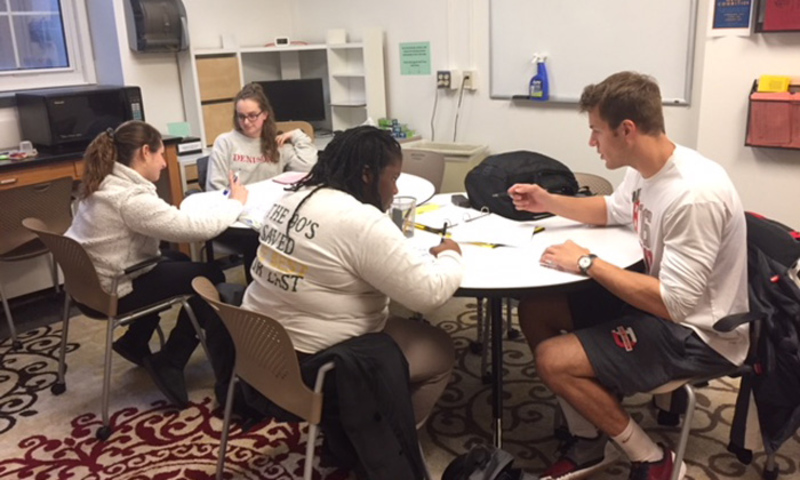The Writing Center
We believe that writing is not a process that occurs in isolation. We work toward a collective effort that students, instructors, and writing consultants engage in together.
It’s difficult for all of us to read our own writing critically — all writers benefit from another set of eyes. Since your reader can’t be inside your head, knowing what you think, why you think it, how you think it, and how it’s connected to another idea, you have to be very explicit about all these elements of your writing. The Writing Center’s consultants are trained to recognize the cloudier parts of your writing and to offer practical and honest advice to you about how to remedy those problems.
For Students
What we do to assist you:
- Work with you as you learn and use conventions of Standard English: grammar, mechanics, citation styles.
- Make sense of an assignment.
- Develop your ideas/thesis/argument, even if the consultant hasn’t taken the class or had another class with the professor Learn an effective writing process.
- Organize and structure your writing Improve introductions, conclusions, transitions, and body paragraphs.
- Design more effective sentences Identify the weakest elements of your writing so you can focus when you revise.
- Flesh out your writing skills over a prolonged period of time.
What we don’t do:
- Revise or “fix” your paper for you.
- Proofread entire papers for grammar errors or misspellings.
- Tell you what you should think.
- Help significantly with a paper due in an hour or even the next day.
For Instructors
What we do to assist you:
- Visit your class to explain what the Writing Center does.
- Provide training in teaching elements of the writing process.
- Design writing assignments in tandem with you to meet your objectives.
- Conduct peer response sessions in the Writing Center under your guidance.
- Discuss writing issues with you.
What we don’t do:
- Tell you what writing assignments to make.
- Tell you how writing in your discipline should look.
- Tell Writing Center clients what grades they should receive on the writing assignments you make.
Prologue: Denison’s first-year writing journal
Prologue, a journal of first-year writing published annually, showcases excellent first-year writing and introduces students to the process of undergraduate publishing. We look forward to reading your submissions!
